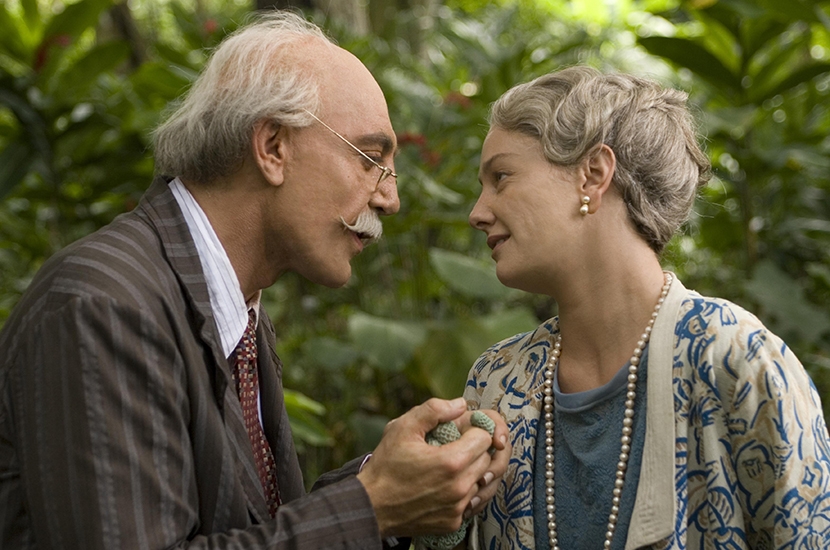In Competition No. 3143, a nod to García Márquez’s 1985 novel, you were invited to submit a short story entitled ‘Love in the Time of Covid-19’ in the magical realist style.
Magic realism has been contaminated somewhat by overuse and is in any case not to everyone’s taste. But if done well it can be wondrous and transporting, and it lends itself well to trauma narratives. As the late poet and translator Alastair Reid wrote of Márquez: ‘What … [he] is showing us all the time is the humanising power of the imagination. In all his writing, the imagination is no mere whimsy, nor a Latin-American eccentricity: it is a way of survival, as we say nowadays.’
This was a tricky challenge but attracted a decent-sized entry nonetheless. As well as the old hands, there has been a surge of newcomers, which is cheering to see. Commendations to Timothy Clegg, Jeremy Carlisle, Margaret Bond, Nick Syrett and Philip Sheahan. The winners earn £30 .
On his 90th birthday, Umford Nairn caught fire. Twelve weeks of lockdown in his tiny apartment catalysed with the presence, in an apartment of the opposite block, of Ms Consuela Ximenez, causing the conflagration. They’d never been close, though he’d lusted after the shadow on her bedroom wall as nightly she retired. Now, socially distanced by decree, he was aflame with unquenchable passion. Cawing at one another from their balconies like ancient ravens, neither able properly to see or hear the other on account of the usual geriatric infirmities, they had become an odd couple. He’d sent, by means of online retail, romantically speculative love tokens: bagpipes, carnivorous lupins, a semaphore edition of Proust. The entitled smile with which she accepted his tribute lit frustration into incandescence. Nairn leapt from his balcony to hers, ecstatic flames of love immunising and immolating them both as the pleasures and terrors of touch resurged.Adrian Fry
The toilet roll factory stood next to the field where Owen kept his goats, and in the evenings he would walk to the fence and study the inscriptions on its huge gilded dome through field glasses. Their power, like the magnitude of love itself, lay in their indecipherability. So he thought of Doris, and as he headed home sniffing the keen, baptismal scent of goat urine, he was able to feel they were a unity — she in Fray Bentos, he in Presteigne.But when the plague came, and the consumer frenzy, his idyll was disturbed. Cynical police in riot gear guarded the fence. The goats lay mournfully in their pasture, like adoring proselytes deserted by a false messiah. Owen felt his heart shatter.It shattered into an infinity of pieces, and wherever they landed the plague infection became a love charm for all. Not one fell in Uruguay.Basil Ransome-Davies
‘You must self-isolate, mama,’ says the woman in the face mask, picking up Mariana’s supper tray.Sitting in her armchair, Old Mariana nods. The fear in her daughter’s voice is as tangible as the fear in the neighbourhood.Once she’s alone, Mariana stumbles out on to her bedroom balcony. She needs to alleviate people’s anxieties. She takes a shaky breath and sings. Her cracked, wheezy voice transforms itself and soars into the ether. A trail of scintillating dust flows from her mouth, illuminating the terrifying darkness and filling the air with joyfulness.Across the street a stray coil of rainbow-coloured scintillations envelopes Old Eduardo. He rises from his sick bed, lumbers to his balcony and a rich tenor suddenly accompanies Mariana’s soprano.Lights go on, windows open and fear recedes as two voices, voices like angels’, intertwine, just as Mariana and Eduardo intertwined when they were lovers, almost a lifetime ago.Paul Freeman
‘Stay at Home. Clap. Watch Bargain Hunt.’ Dr Urbino’s attempt to undertake all three, while precariously atop a ladder retrieving an escaped parrot, ended, predictably, in ignominious failure, not to mention his untimely demise. Fermina observed the scene, rolled her eyes, then fell hopelessly in love with the parrot, José, a cobalt-winged parakeet blessed with an IQ of 350, a passion for plantain tajadas and fluent in 17 languages. The feeling was mutual. Viruses came and went, outbreaks of insomnia literally glued locals to online shopping websites, while Fermina and José commenced their 100 years of self-isolation regardless. José learned Argentine tango, whilst playing Andean panpipes; Fermina learned to roller-skate on a tightrope, squawking ‘Pieces of Eight’ and ‘Who’s a Pretty Boy’ with postmodern irony. ‘Whenever I look up, there will be you,’ José said, channelling Thomas Hardy. ‘Whenever I look up, there will be you,’ repeated Fermina, parrot fashion. David Silverman
The government had declared that tomorrow he would become vulnerable, so he decided, like a desert hermit, to live on top of a pillar. Today he was in the supermarket, seeking essential items. As he stretched for the toilet roll, a female hand stretched from the opposite direction. They tugged, the paper unwound and rolled them up together like mummies. On they rolled, past the checkout and out into the sunshine.Unbound, they walked, a long smile apart, to his pillar. ‘What do you do?’ he asked.‘Modelling.’‘I’m not surprised.’‘Data modelling,’ said the elderly lady.‘My data are that I’m 70 tomorrow.’She washed her hands as she sang ‘Happy Birthday’, then threw the soap up to him on his pillar, where it dissolved into a corona of golden butterflies. She blew him a kiss and he blew it back. It was precisely two metres long. Nicholas Hodgson
No. 3146: getting your goat
You are invited to submit a poem about the goats of Llandudno, who recently ran amok through the Welsh seaside town. Please email up to 16 lines to lucy@spectator.co.uk by midday on 22 April. NB. We are unable to accept postal entries for the time being.






Comments